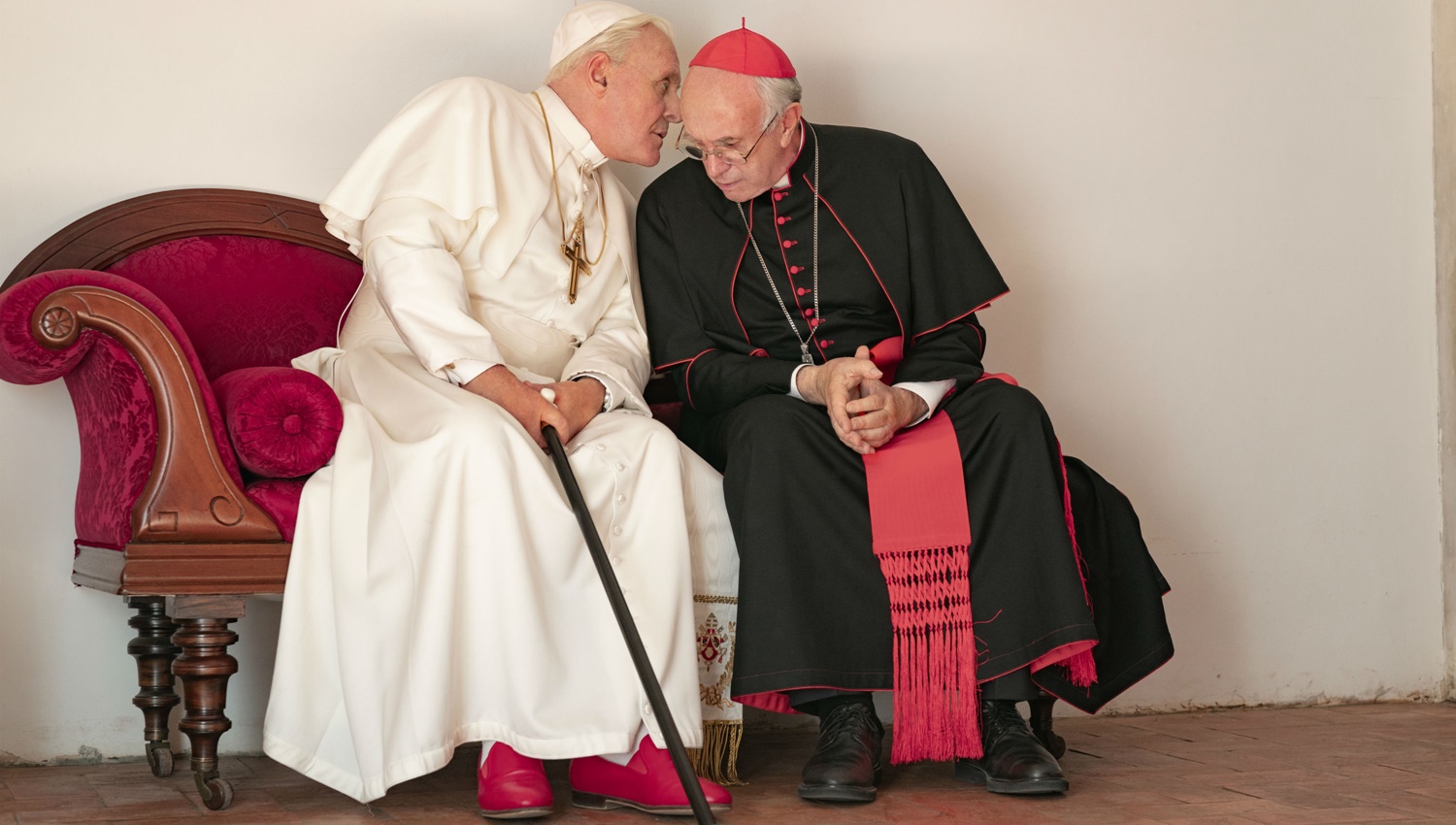
The Two Popes
Dustin Chase
You don’t have to be Catholic, know anything about the Papacy, or even follow religion to be moved by Fernando Meirelles’ (“The Constant Gardner”) latest film. “Any journey can start with a mistake.” The Two Popes isn’t about mistakes, despite featuring the subplot of the first Pope to resign in over 700 years. It’s also not about the scandal that has plagued the church for an age. It’s a film about differences and convictions. In a world where power and authority are plagued with what Pope Francis might refer to as distracting funerary. “Can one ever live simply enough,” he questions. Anthony McCarten’s screenplay doesn’t present dueling popes, but a narrative about the search for humanity and mercy. Pryce (“The Wife“) gives an inspiring performance as the current Pope, while Hopkins character arc is a fascinating evolution.
Jorge Mario Bergoglio (Price) from Buenos Aires, received the second most votes when Joseph Aloisius Ratzinger (Hopkins) was elected pope in 2005. A discussion among the private papal conclave indicated that the person right for the job, was the one who wanted it the least, meaning Bergoglio, who has always emphasized God’s mercy over condemnation. Pope Benedict favored conservative views that continued to push followers away from the religion, his mishandling of scandal and lack of action within his own administration would create further tensions. Bergoglio decides to ask permission from Pope Benedict to retire at nearly the same time Benedict summons him, the adversary Benedict now realizes should have been elected in the first place. The two men of God may never agree, but their time spent together allows them to respect the other’s perspective and ride the winds of change.
For such a small intimate film, Meirelles always makes it feel big and vast.
Snappy editing and a witty screenplay give the viewer a fascinating look into the politics and responsibilities of the papacy. Each conversation and interaction between the popes is electrified with two actors fully dedicated to what McCarten has interpreted in these two global figures. “I know you like to talk, but let’s sit down and be quiet together,” Benedict begs of his successor. There isn’t a quiet moment in the film though, the slowest moments being the flashbacks, necessary to build the backstory on why Bergoglio initially refuses to be pope. One of many simple, effective scenes, Benedict, noticing how well Bergoglio gets along with everyone he meets, from the security guards to the gardeners, asks what’s his trick. Bergoglio replies, “I try to be myself”.
“The Two Popes” is at times funny, contemplative about how we all see truths in our own way. “Truth may be vital, but without love, it’s unbearable.” It’s a rather easy film to follow, very straight forward in explaining the ritual of electing a pope. For such a small intimate film, Meirelles always makes it feel big and vast. Pryce’s striking resemblance to Pope Francis aids his performance. It’s also a stark contrast to the villain or detestable husband roles he typically plays. Hopkins should be the antagonist in the story, but the elderly sarcasm he spouts just makes him more like a curmudgeon grandpa figure who is slowly opening up to modern ideology. The film ends on such a hopeful note that it is hard not to feel something like, there are still people with power who want to inspire instead of dictate.
Final Thought
The Two Popes is a dueling conversation about humanity, a tango dance of convictions that resonates beyond religion. Oscar-worthy performances from Pryce & Hopkins.
